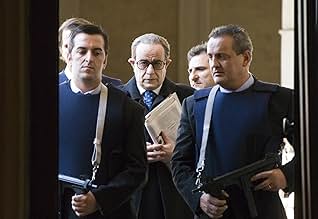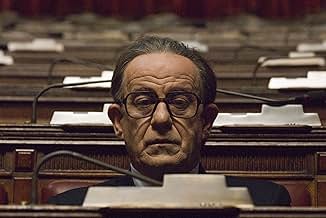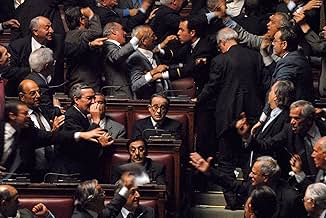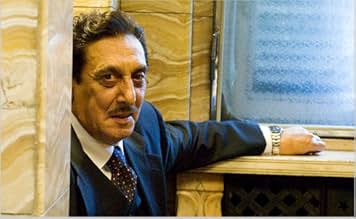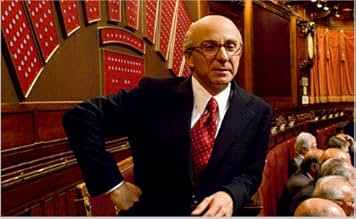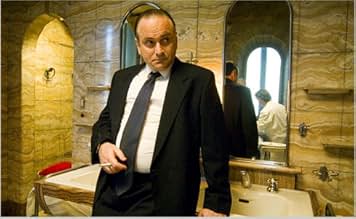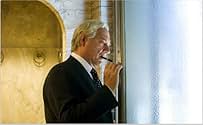The story of Italian politician Giulio Andreotti, who has served as Prime Minister of Italy seven times since the restoration of democracy in 1946.The story of Italian politician Giulio Andreotti, who has served as Prime Minister of Italy seven times since the restoration of democracy in 1946.The story of Italian politician Giulio Andreotti, who has served as Prime Minister of Italy seven times since the restoration of democracy in 1946.
- Nominated for 1 Oscar
- 32 wins & 40 nominations total
- Director
- Writer
- All cast & crew
- Production, box office & more at IMDbPro
Storyline
Did you know
- TriviaThe first cut of the movie was 145-minute long.
- Quotes
Giulio Andreotti: I know I am an average man but looking around I do not see any giant.
- Crazy creditsEnd credits features the following dedication: "per Daniela, che mi ha salvato" ("for Daniela, who saved me"). Daniela D'Antonio is Paolo Sorrentino's wife.
- ConnectionsFeatured in The 82nd Annual Academy Awards (2010)
- SoundtracksLa prima cosa bella
Written by Mogol, Gian Piero Reverberi and Nicola Di Bari
Performed by Ricchi e Poveri
Published by Universal Music Publishing Ricordi S.r.l.
Courtesy of EMi Music Italy S.p.a.
Featured review
Giulio Andreotti is the seven times Prime Minister of Italy leading the ruling Christian Democracy Party. In 1978, The Red Brigades kidnaps his rival former Prime Minister Aldo Moro. Andreotti refuses to negotiate and Moro is killed. Over the next 15 years, various people are mysteriously killed. In 1991, he's named Senator for Life. In 1992, he resigns as Prime Minister. His bid for the Presidency fails and he goes on trial for corruption with the Mafia.
I have one problem with this movie and it's a big one. I feel like I did a PhD on Italian politics watching this movie. The first half is nearly impossible to follow for someone like me who knows nothing about Italy during this time. It's a lot of style but I couldn't understand the substance. There are a lot of deaths but I don't know the significance of some of them. The second half is more compelling with the criminal trial. It becomes a character study and Andreotti is an intriguing character. I'm sure this movie is much more compelling for people with a background in Italian politics during this time. A lot of this is going over my head.
I have one problem with this movie and it's a big one. I feel like I did a PhD on Italian politics watching this movie. The first half is nearly impossible to follow for someone like me who knows nothing about Italy during this time. It's a lot of style but I couldn't understand the substance. There are a lot of deaths but I don't know the significance of some of them. The second half is more compelling with the criminal trial. It becomes a character study and Andreotti is an intriguing character. I'm sure this movie is much more compelling for people with a background in Italian politics during this time. A lot of this is going over my head.
- SnoopyStyle
- Jul 7, 2016
- Permalink
- How long is Il Divo?Powered by Alexa
Details
- Release date
- Countries of origin
- Languages
- Also known as
- Il divo
- Filming locations
- Via del Corso, Rome, Lazio, Italy(graffiti on the wall)
- Production companies
- See more company credits at IMDbPro
Box office
- Budget
- €5,700,000 (estimated)
- Gross US & Canada
- $240,159
- Opening weekend US & Canada
- $13,867
- Apr 26, 2009
- Gross worldwide
- $11,260,366
- Runtime1 hour 50 minutes
- Color
- Sound mix
- Aspect ratio
- 2.35 : 1
Contribute to this page
Suggest an edit or add missing content



